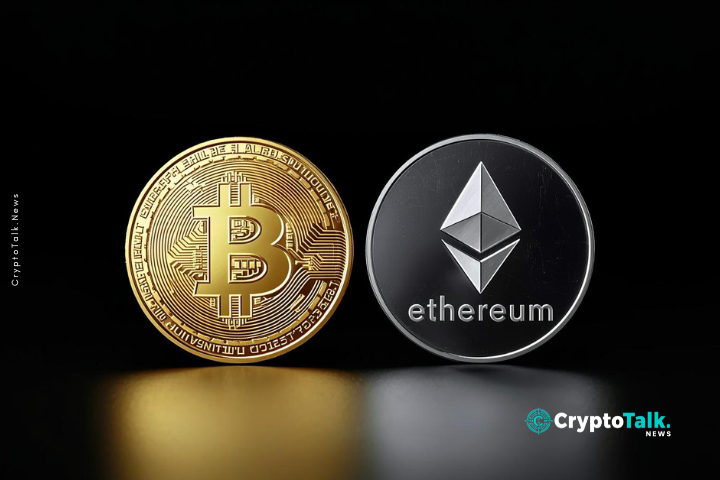Ethereum co-founder Vitalik Buterin is placing a big spotlight on one of the most important, but often overlooked parts of the crypto world: privacy.
In a recent post on X (formerly Twitter), Buterin said that privacy is the “true alpha” of crypto. This means he believes privacy is where the most value and strength lie — not just in fast systems or big profits.
Why Privacy Matters in Crypto
Buterin has always talked about big ideas like decentralization and freedom. Now, he is pushing harder for privacy to be a core part of crypto’s future. He warns that if privacy is not protected, other important things like user freedom and system fairness will suffer too.
In fact, he argues that privacy is not just a nice feature — it’s necessary.
“Without privacy, people can’t act freely. They’re always being watched,” Buterin wrote in an April essay. “And when that happens, you get fear, control, and less creativity.”
He says that a world without privacy is dangerous. This is especially true now that AI and facial recognition tools are growing more powerful. If we don’t protect data, it can be used against us.
Buterin believes crypto can help. Not just to trade coins — but to give people safe tools to keep their lives private.
The Power of Zero-Knowledge Proofs
To build that safer world, Buterin is pushing for the use of zero-knowledge proofs (ZKPs).
These are smart mathematical systems that let someone prove something is true without showing how. For example, a person could prove they are over 18 without sharing their birthdate.
These tools are already being tested in apps on the Ethereum network. Some help people hide wallet balances, mask transactions, or even verify their identity without giving away real names.
One project, zkSync, is using this tech to make Ethereum faster and more private. Other tools like Aztec and Tornado Cash have also worked to protect data on-chain — though not without controversy.
Despite challenges, Buterin believes this is the future. He recently shared a series of updates that show how developers are making ZKPs easier to use and more secure.
When Too Much Transparency Is a Problem
It might sound strange, but Buterin says too much transparency can actually hurt us.
“In some cases, seeing everything causes more harm than good,” he said.
He gave examples like:
-
Fair elections: If votes are fully public, people can be bribed or threatened.
-
AI systems: If we can see the training data, it could be changed or misused.
-
Corporate secrets: If all plans are open, it’s easy to steal ideas or manipulate markets.
So instead of sharing everything, the better plan is to collect less data from the start. Then, use smart tools like ZKPs to keep things running safely.
This approach is being called “privacy by design” — a way of building systems that don’t need to ask for your personal data at all.
What This Means for Ethereum and the Web3 World
Buterin is clearly trying to guide the Ethereum ecosystem in a strong direction. He wants the next wave of Web3 apps to be:
-
Decentralized (run by many, not one)
-
Private (you control your data)
-
Efficient (fast and low-cost)
He also supports tools like homomorphic encryption, which allow data to be used while still encrypted. This means companies or apps could work with your data — without ever seeing it.
More projects are starting to follow this path. New wallets are being built with privacy in mind. Decentralized exchanges are testing private trades. Even NFT platforms are looking at ways to keep users’ info safe.
And as governments talk more about crypto rules, Buterin wants privacy to stay a top goal — not just something extra.
A Global Debate on Crypto Privacy
Privacy in crypto is a hot topic across the world. While users want more protection, governments worry about crime or fraud. In 2022, the U.S. sanctioned Tornado Cash, a tool that mixed coins to hide transfers. This sparked a huge debate: Is privacy a right, or a risk?
Buterin’s answer is clear: It’s a right. And not just for individuals — for society as a whole.
“Strong privacy helps good systems stay fair,” he said. “If we don’t fight for it now, we may lose it forever.”
Final Thoughts
Vitalik Buterin has never been shy about his beliefs. Now, as Ethereum grows and the crypto world changes fast, he is urging developers, users, and leaders to prioritize privacy.
This isn’t just about hiding your wallet. It’s about keeping freedom, choice, and safety in a world full of cameras, trackers, and AI bots.
The tools exist. The tech is here. The only question now is: Will we use it?
Author
-
Tanjid Osman is a crypto journalist and writer with a keen focus on blockchain technology and digital assets. At CryptoTalk.News, he delivers in-depth market analysis, price predictions, and insights into emerging trends. Known for simplifying complex crypto topics, Tanjid empowers readers to make informed decisions in the ever-evolving digital economy.
View all posts



























